Fine Madness, A (1966)
“To hell with his poetry! I want to make him a useful, social human being.”
|
Synopsis: |
|
Genres, Themes, Actors, and Directors:
Review: Poor Woodward receives the brunt of Samson’s anger at all turns — and watching the domestic violence taking place in their home is harrowing. It’s infuriating to see her portrayed as a resolutely loyal (albeit gritty and resilient) dame willing to put up with it all given her husband’s supposed “genius”. Indeed, everything about this dated film smacks of misogyny and juvenile glorification of sex and violence, from an early scene in which Samson seduces a (what else) ditzy secretary (Sue Ane Langdon) while allowing a carpet cleaning machine to fill up an office with suds (funny – not): … to his belittling words and demeanor at a women’s social event for which he’s being paid to present: … to numerous sequences in which he either swings at or literally knocks out his wife: … to his break-in and destruction of the office of the surprisingly unfazed therapist his wife has paid. Naturally, he also manages to seduce women left and right as he continues to avoid being served process papers and being taken out by a few hitmen; among his conquests are Colleen Dewhurst’s silver-haired Prussian nurse: … and O’Neal’s neglected, sexually frustrated wife (Jean Seberg). This is all really a mess, and worth skipping. Notable Performances, Qualities, and Moments: Must See? Links: |
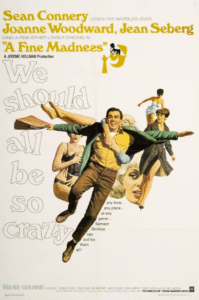
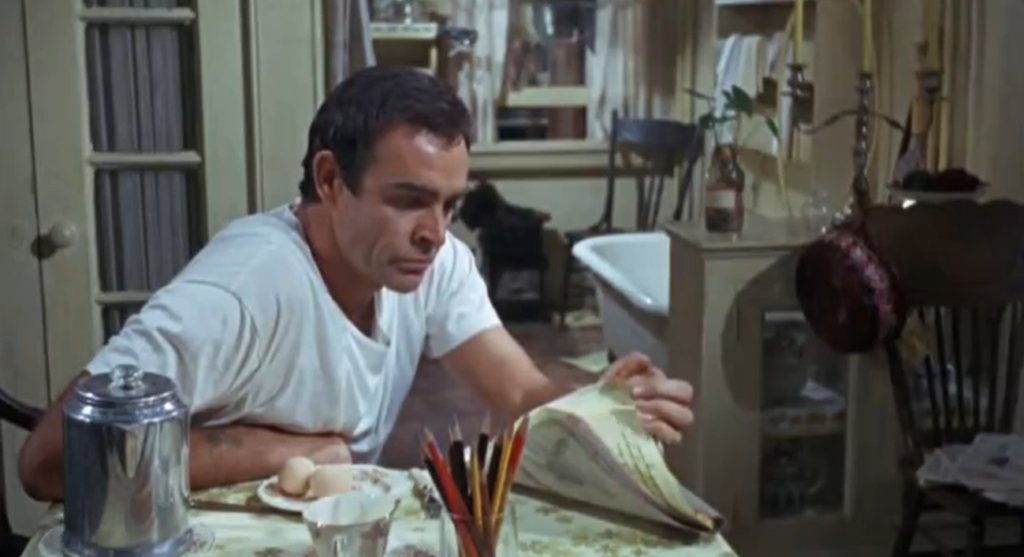
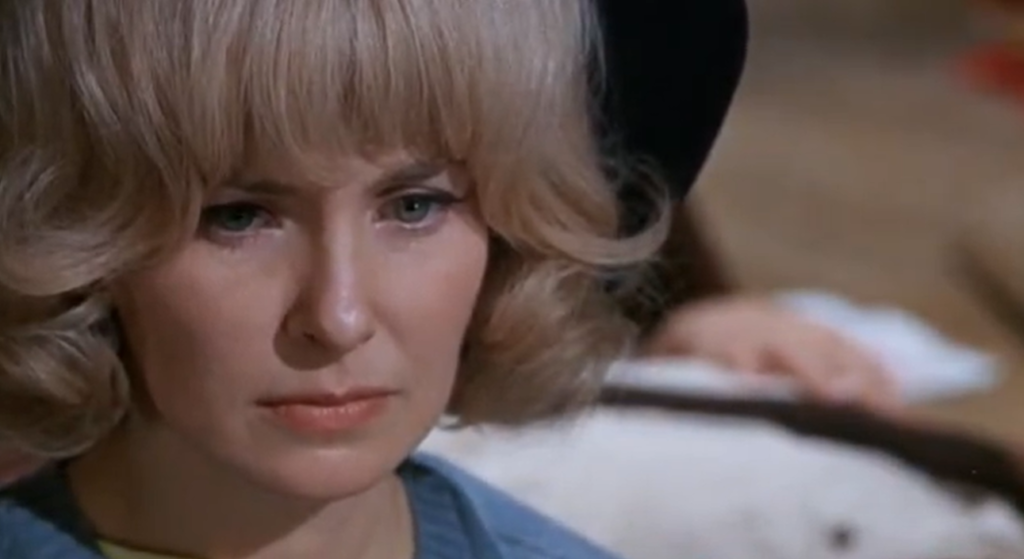
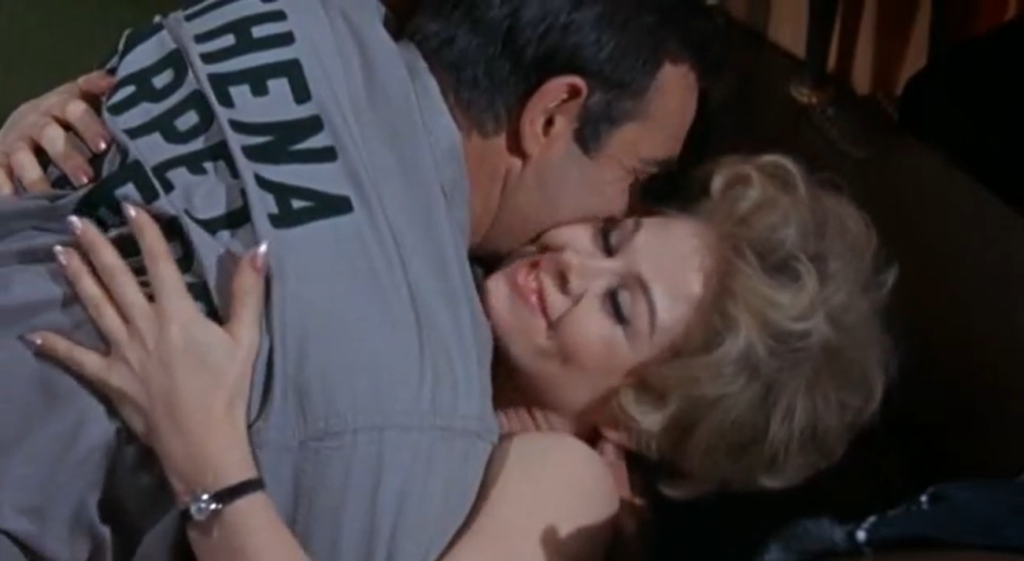
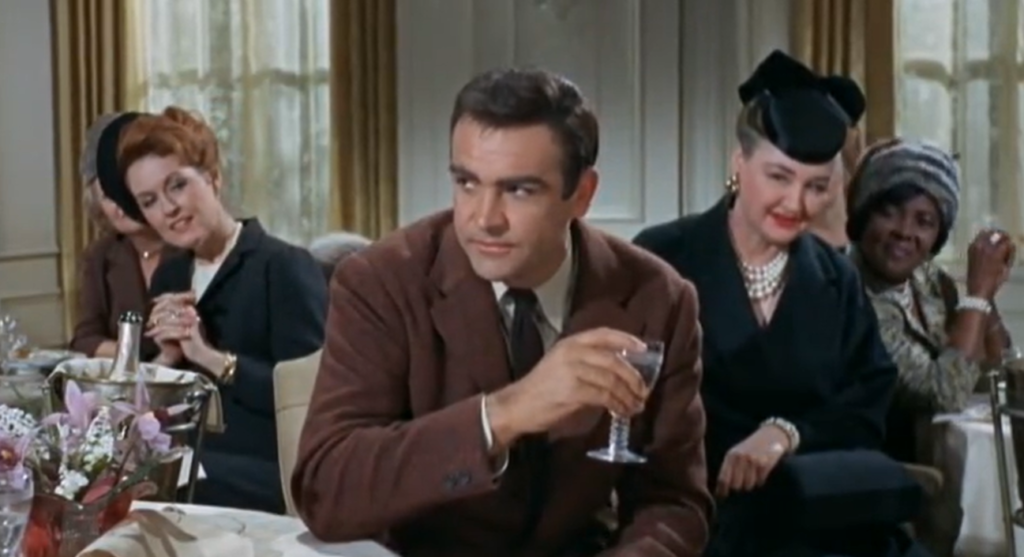
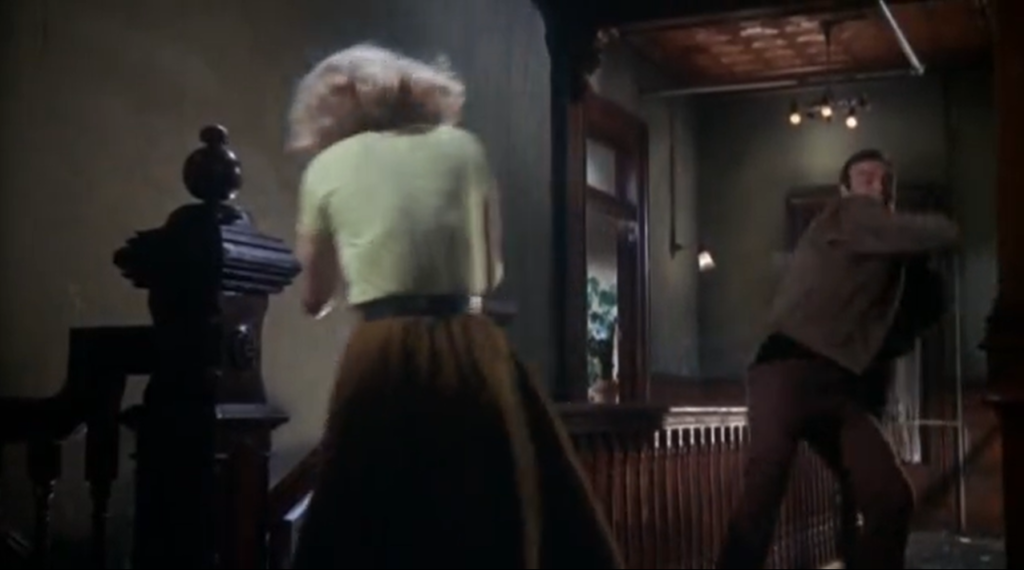
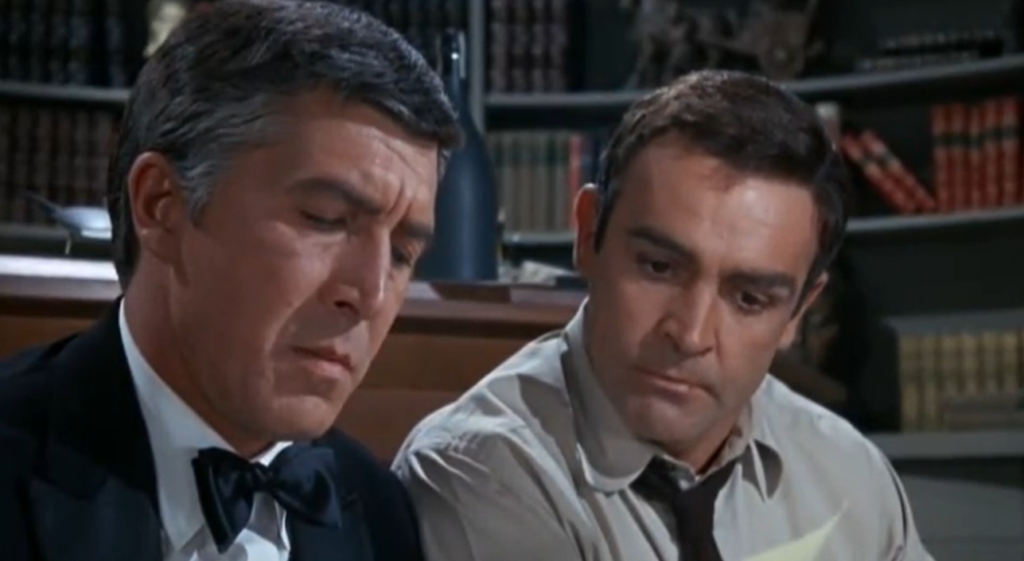
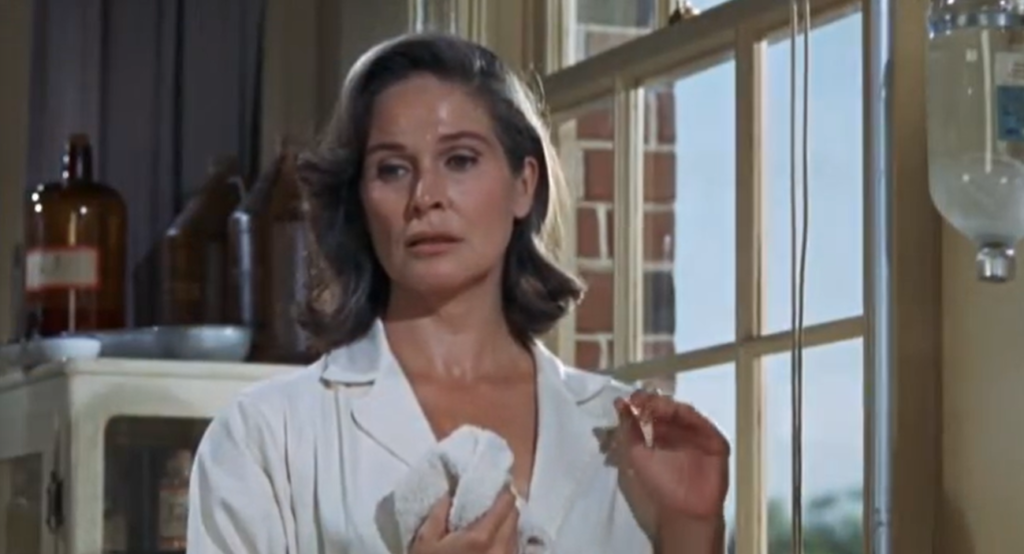
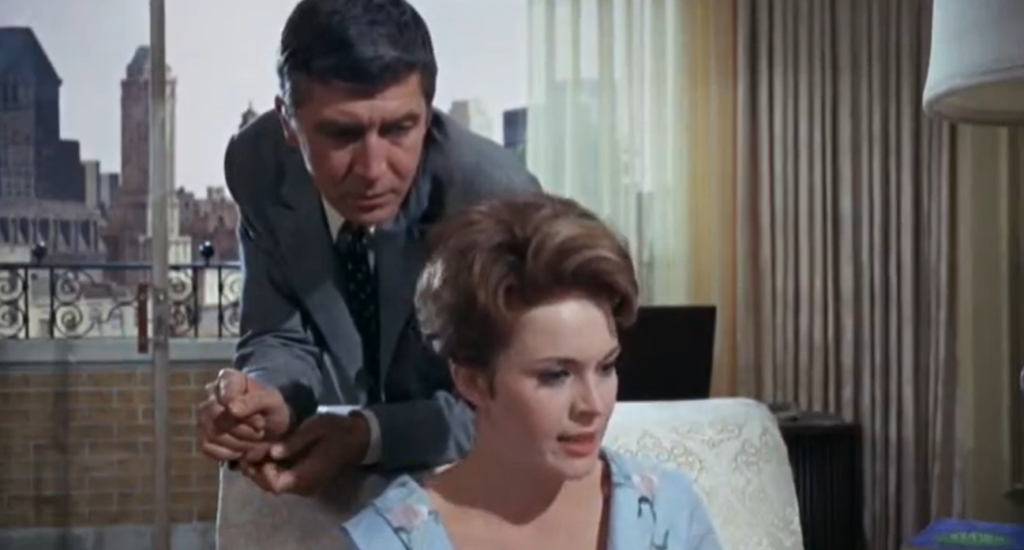
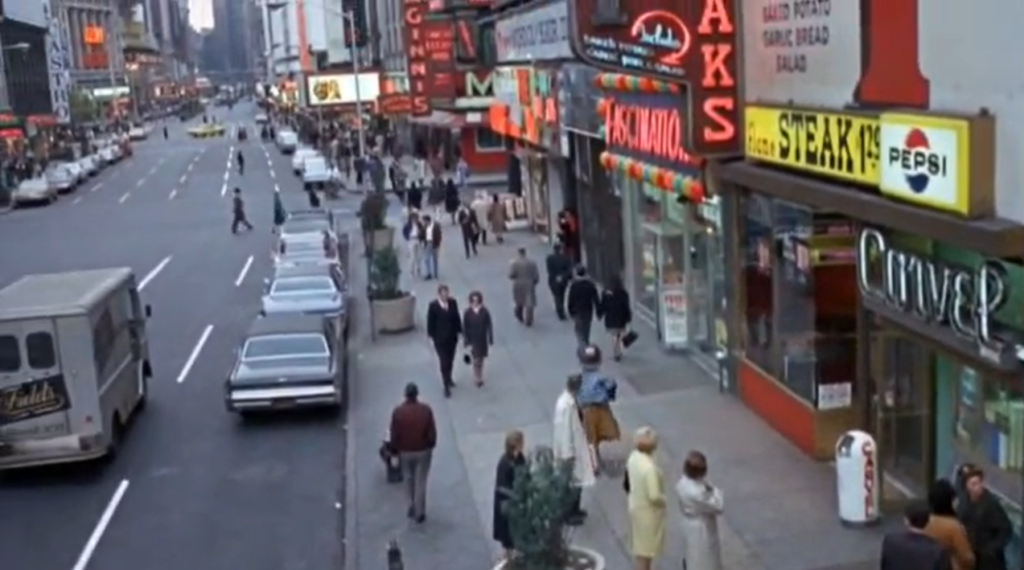
4 thoughts on “Fine Madness, A (1966)”
Not one I’ve seen and I’d only heard of it due to the Kirshner-Connery re-teaming for Never Say, Never Again 17 years later (it was mentioned a fair amount during NSNA’s release). It only gets 33% on Rotten Tomatoes an admittedly unreliable website for older films unless they get significant reissues due to the lack of wide-ranging reviews available. It does seem to me that to make a “comedy” about abuse is on to a loser, certainly in the Me Too era.
Interestingly, Leonard Maltin’s review from his sadly now defunct film guide is positive (⭐️⭐️⭐️ Out of ⭐️⭐️⭐️⭐️):
“It’s stubborn, nonconformist poet Connery versus the rest of society in uneven but sometimes outrageously funny satire. Screenplay by Elliot Baker, from his novel.”
… which marginalises by omission (and makes light of) Connery’s abusive violence and misogyny. Typical of pre-Me Too attitudes sadly.
I suppose the only worth this film will now have, beyond fans of the various participants, will be to illustrate the changing attitudes towards sexual politics, interrelationships within society and what is / was acceptable.
First viewing (11/22/20). Skip it.
Ridiculous, misogynist and unfunny black comedy follows Connery as a (very bad!) poet with a huge ego who believes that everything and everyone is beneath his ‘brilliance’. He can’t be much bothered by anything resembling real work because he’s in the midst of writing his ‘crowning achievement’ epic poem. This is supposed to be representative of the rebellious spirit of the ’60s. Yawn.
A talented cast battles material that gives no one much of a chance to do anything interesting.
I appreciate your affirmations here, Rick and David. This one took me by surprise — I literally couldn’t believe my eyes at what I was seeing. I agree, Rick, that the value in this one is “to illustrate the changing attitudes towards sexual politics, interrelationships within society and what is / was acceptable.”